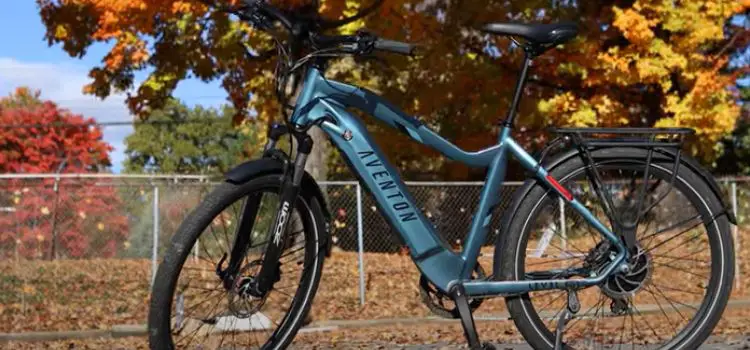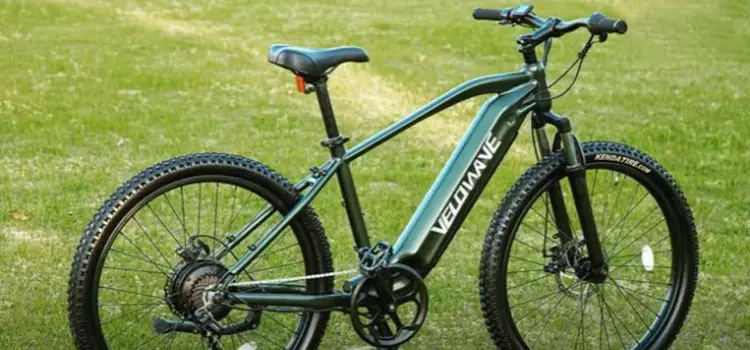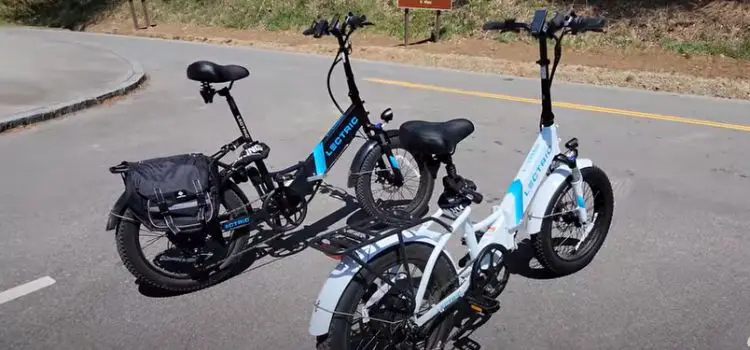Electric Scooter vs. Electric Bike: Which Type Of Bike Is Better?
As an Amazon Associate I earn from qualifying purchases.
In the ever-evolving landscape of urban mobility, personal electric vehicles have emerged as game-changers, offering an efficient and eco-friendly alternative to traditional modes of transportation.
Among the most popular choices are electric scooters (e-scooters) and electric bikes (e-bikes), each presenting unique features and advantages.
In this comprehensive guide, we’ll delve into the electric scooter vs. electric bike debate, exploring various aspects to help you make an informed decision based on your specific needs and preferences.

The Rise of Micromobility
As major cities shift away from car-centric infrastructure, micromobility solutions are gaining prominence. Commuters are increasingly turning to personal electric vehicles to tackle last-mile problems and escape the clutches of rush-hour traffic and unreliable public transportation systems.
The decision between an e-bike and an e-scooter is influenced by several critical factors, such as portability, storage capacity, and the practicalities of your living space.
1. Portability and Storage
The first consideration in the electric scooter vs. electric bike debate often revolves around portability and storage. If you reside in a compact apartment with limited space, the ability to easily transport and store your vehicle becomes paramount. Electric scooters, particularly foldable models like Unagi’s Model One, shine in this regard. Weighing under 30 pounds, these scooters can be conveniently folded and stowed in a closet or carried on public transportation.
On the other hand, electric bikes, with their larger frames and sometimes hefty weights ranging from 50 to 100 pounds, might pose challenges in terms of portability. If space is a premium in your daily life, a folding electric bike could be a more accommodating compromise, offering a balance between portability and functionality.
2. Comfort and Convenience
The ideal personal electric vehicle varies from person to person based on individual preferences and physical considerations. Comfort plays a pivotal role in this decision-making process. Electric bikes, with their larger frames and accommodating tires, often provide a more comfortable ride. Many electric mountain and hybrid bikes are equipped with suspension systems, making them suitable for navigating bumpy city streets or trails.
However, it’s essential to note that electric scooters are not left behind in the comfort department. High-performance models feature large pneumatic tires and suspension systems, ensuring a smooth and comfortable ride. Unagi’s Model One, for instance, maintains a balance between comfort and convenience, offering a pleasant riding experience while remaining lightweight and foldable.
3. Speed and Range
The comparison between electric scooters and electric bikes extends to factors like speed and range. In general, electric bikes tend to outperform scooters at top speeds, reaching up to 30 mph or more. The larger batteries and motors in e-bikes contribute to their higher speeds. This makes electric bikes suitable for those with longer commutes or a preference for higher speeds.
Electric scooters, while slightly lagging in top speeds (typically around 22 mph), excel in maneuverability. Their sleek and nimble design allows riders to easily navigate through traffic, making them an ideal choice for urban commuting. In crowded city streets, the ability to weave through traffic and access shortcuts can outweigh the need for top speed.
4. Cost and Maintenance
Cost considerations play a crucial role in choosing between an electric scooter and an electric bike. Many high-quality electric scooters, such as the Unagi Model One, are available at an affordable price, making them an attractive option for budget-conscious consumers. Moreover, scooters are often more theft-resistant, reducing the risk of financial losses.
While there are budget-friendly electric bikes available, some high-performance, specialty, and cargo e-bikes can come with a hefty price tag, reaching several thousand dollars. Additionally, the risk of theft is higher for electric bikes, contributing to increased costs for bike locks and insurance. Maintenance requirements for e-bikes are generally higher compared to well-made electric scooters, which may only need occasional battery replacements.
5. Lifestyle Considerations
Your choice between an electric scooter and an electric bike may also hinge on your lifestyle and daily activities. If you plan to use your electric vehicle for regular shopping or transporting children, an electric bike with a sturdy rack and cargo capacity is the superior choice.
On the other hand, if you prioritize a quick and nimble mode of transport for weaving through traffic and hopping on and off public transportation, a lightweight folding electric scooter could be the clear winner.
6. Environmental Impact
Both electric scooters and electric bikes contribute to reducing carbon emissions and promoting a greener mode of transportation. As cities strive for sustainability, personal electric vehicles offer an eco-friendly alternative to traditional gas-powered options. Choosing between an e-scooter and an e-bike aligns with the broader goal of creating more sustainable and environmentally conscious urban mobility solutions.
7. Pros and Cons
Electric Scooter
Pros:
- Portability: Electric scooters are lightweight and often foldable, making them highly portable and easy to carry on public transportation or store in small spaces.
- Maneuverability: With a nimble and sleek design, electric scooters excel at navigating through traffic, allowing riders to easily weave around obstacles.
- Cost-Effective: Many electric scooters are available at affordable prices, making them a budget-friendly option for urban commuters.
- Low Maintenance: Electric scooters generally require less maintenance compared to electric bikes, with occasional battery replacements being the primary concern.
- Convenient Storage: Compact and foldable designs make electric scooters convenient for storage in closets or under desks, ideal for those with limited living space.
Cons:
- Limited Range: Electric scooters typically have shorter ranges compared to electric bikes, making them more suitable for short commutes rather than longer journeys.
- Smaller Wheels: Smaller wheels may result in a less smooth ride, especially on uneven surfaces, and may not handle bumps as effectively as larger wheels.
- Reduced Visibility: Scooter riders are lower to the ground and may be less visible to drivers, potentially increasing safety concerns.
- Less Comfortable: While many electric scooters offer a comfortable ride, the lack of suspension on some models may result in a bumpier experience on rough terrain.
Electric Bike
Pros:
- Comfortable Ride: Electric bikes often come with larger frames, tires, and suspension systems, providing a more comfortable ride, especially on bumpy city streets or uneven terrains.
- Longer Range: Electric bikes generally have longer ranges, making them suitable for longer commutes and adventures without the need for frequent charging.
- Versatility: Electric bikes cater to a variety of commuting needs, with options ranging from lightweight, folding models to heavy-duty bikes with cargo capacity for shopping or transporting kids.
- Improved Safety: Larger size and improved visibility make electric bikes safer on the road, and the ingrained culture of bike safety may lead to better adherence to safety measures.
- Higher Top Speeds: Electric bikes often have higher top speeds compared to electric scooters, making them suitable for covering more ground in less time.
Cons:
- Weight: Electric bikes can be heavy, making them less portable and challenging to carry, particularly in environments without elevators or storage space.
- Storage Challenges: Larger frames and bulkier designs may pose storage challenges, especially for those living in small apartments or with limited space.
- Cost: High-performance, specialty, and cargo electric bikes can be more expensive, potentially exceeding the cost of certain electric scooters.
- Theft Risk: Electric bikes are at a higher risk of theft due to their higher resale prices, leading to additional costs for bike locks and insurance.
Conclusion: Electric scooter vs. Electric bike
In the electric scooter vs. electric bike dilemma, there is no one-size-fits-all solution. Your decision should be an informed one, considering factors such as portability, comfort, speed, cost, safety, and lifestyle preferences.
If you prioritize a lightweight and easily portable solution for short urban commutes, an electric scooter is the perfect fit.
Conversely, if you require a comfortable ride for longer distances with added cargo capacity, an electric bike is more suitable.
Ultimately, micromobility is about personalizing your transportation to match your lifestyle and needs. Whether you opt for the nimble and foldable electric scooter or the comfortable and versatile electric bike, both offer a forward-thinking approach to urban mobility, contributing to a sustainable and efficient future. The choice is yours, and it’s an exciting time to embrace the transformative possibilities of personal electric vehicles.
Amazon and the Amazon logo are trademarks of Amazon.com, Inc, or its affiliates.






